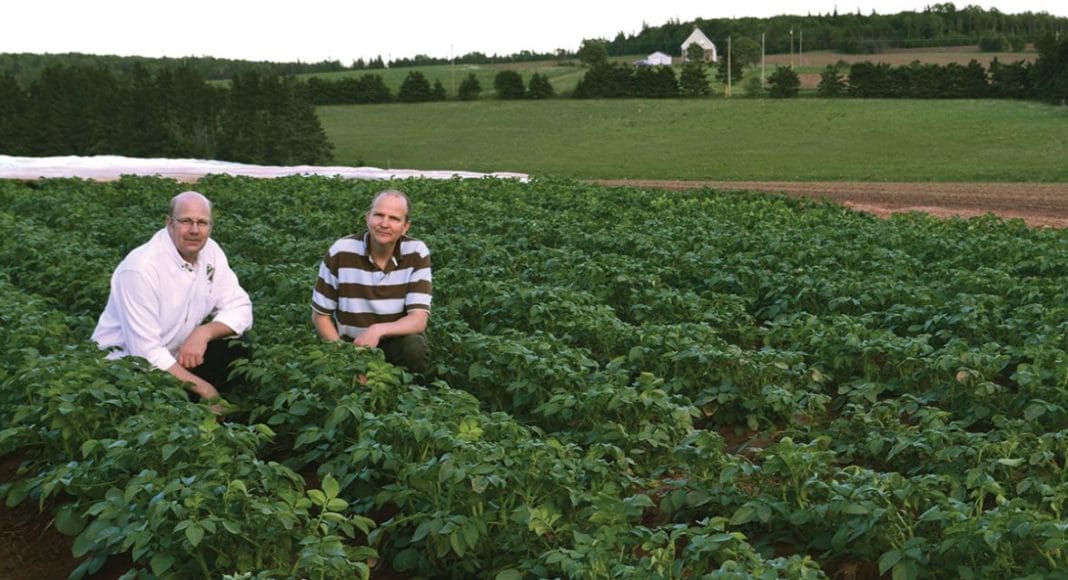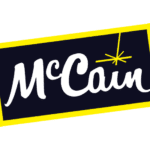“My dad was more of a crop grower than a livestock guy,” says Randy Visser, Gerrit’s youngest son. “When they were living in Holland, he did more with the potato crops. That was his first love and he decided to go back to it.”
When Gerrit passed away in 2009, Visser and his eldest brother William took over the day-to-day operations of the now 2,000-acre farm, 700 acres of which are used to grow seed and table potatoes under the P.E.I. Spuds brand. “The varieties we grow are changing all the time, but we grow primarily Russets, yellows and round whites for the early markets,” says Visser.
Visser says he and his brother are constantly striving for improvement in all areas of their operation — and they achieve this by being adaptable. “We have never really been afraid to change or adapt, and quite often we do find ourselves on the forefront of something new,” he explains. “I think that has definitely contributed to our success.”

Currently the Visser brothers are developing an innovative seed strategy. They start with high-quality, virus-free seed and protect the crop until harvest with a mineral oil and aphicide program. At harvest they split the crop by size — larger potatoes for the fresh market are stored in one facility, while smaller sizes destined for seed are stored in a separate, climate-controlled facility. “The benefits of this strategy are that seed is stored right, handled right and sized right. We think this provides something seed customers are looking for and will help them produce a better crop,” says Visser.
P.E.I. Spuds potatoes are sold throughout Canada, with the Maritimes and Ontario the largest markets. They are also distributed along the eastern seaboard of the United States and occasionally in Puerto Rico, South America, and even Russia.
He says another reason for the farm’s success is a strong family-focused foundation built by his father and sustained by the partnership between the two brothers. The contributions of many dedicated, long-time staff also play an important role.
The biggest benefit of working alongside his brother William, says Visser, “is having the ability to talk things over and have that sounding board. It is a family business but we also see our staff as much a part of it, and I would say they have been a key factor for where we are today and where we are headed.”
With six children of his own and his brother raising five, Visser has thought about the possibility of passing the farm on to the next generation. For him, however, the most important consideration is maintaining the values the farm has been built on.
“The principles of the operation are more important than the people behind them. The important thing to focus on is: what are we doing, and how are we doing it? Are we being sustainable? [Are we] being fair to the people that are with us? Are we providing a product that is good quality to our customers?” says Visser. “That would be my goal for the future. I hope that the core principles we run our business on are transferred to whoever is going to be here in the years to come.”











